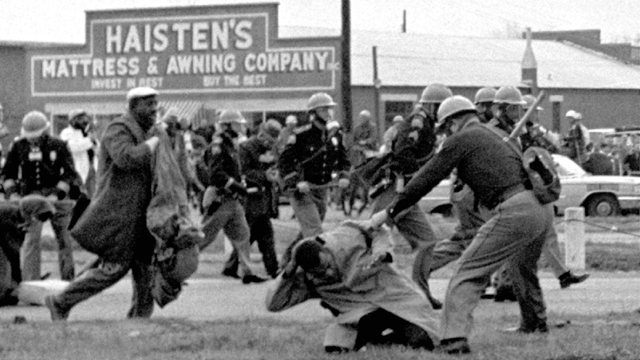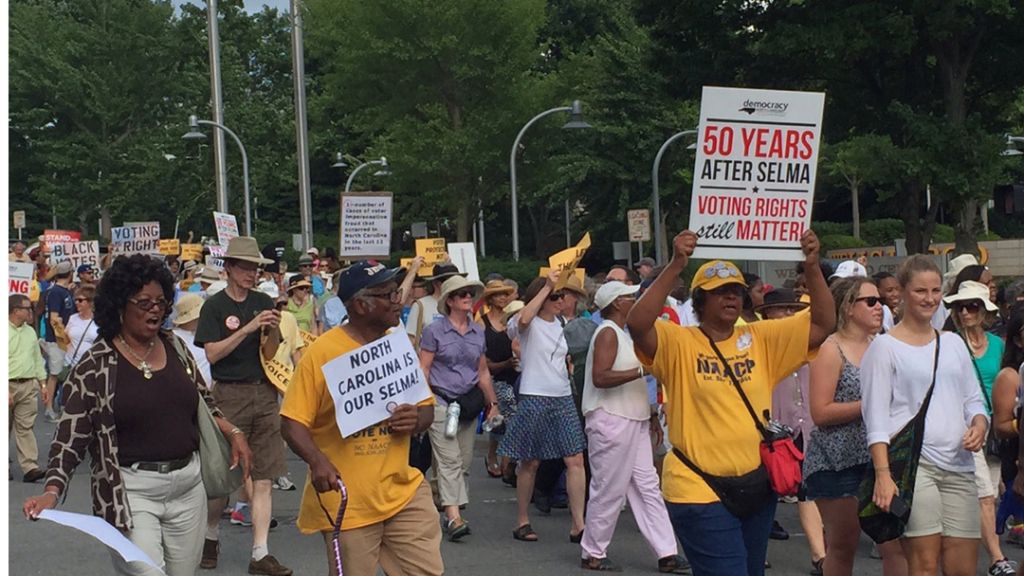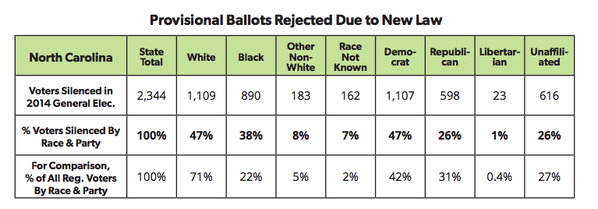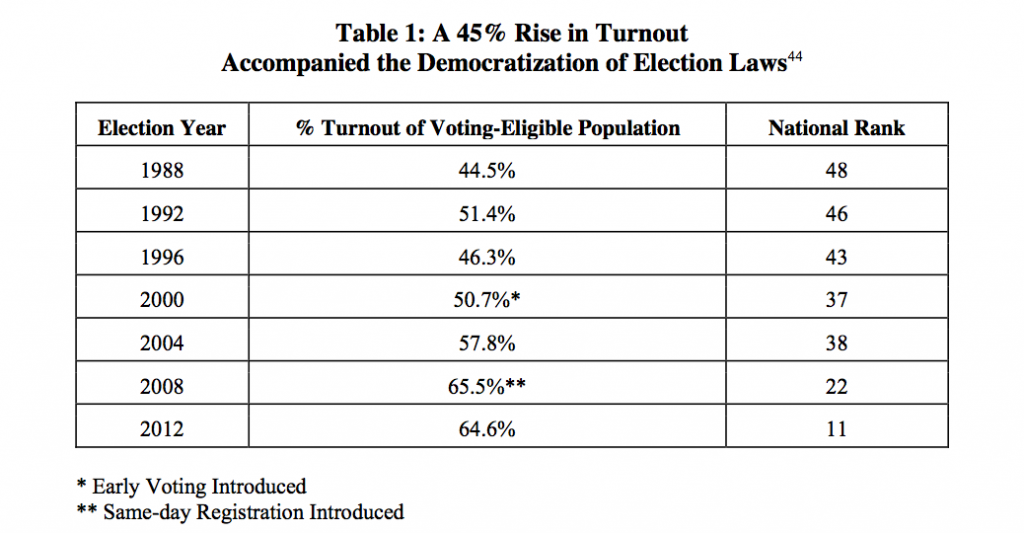This post was first published at The Nation blog.
Winston-Salem — On Monday, the first day of the federal trial challenging North Carolina’s new voting restrictions, thousands of voting-rights activists marched through downtown Winston-Salem. They held signs reading, “North Carolina Is Our Selma” and “50 Years After Selma Voting Rights Still Matter.”
But there’s a crucial similarity between Selma in 1965 and North Carolina in 2015 — both show the lengths conservative white Southerners will go to maintain their political power. The billy clubs and literacy tests of yesteryear have been replaced by subtler and more sophisticated attempts to control who can participate in the political process.

In this March 7, 1965 file photo, state troopers use clubs against participants of a civil rights voting march in Selma, Ala. The day, which became known as “Bloody Sunday,” is widely credited for galvanizing the nation’s leaders and ultimately yielded passage of the Voting Rights Act of 1965. (AP Photo/File)
Exactly a month after the VRA was gutted by the Supreme Court in 2013, North Carolina passed the country’s most sweeping voting restrictions. Key portions of the law—cutting early voting, eliminating same-day registration during early voting, not counting out of precinct ballots — were upheld on a preliminary basis in 2014. Over 2,000 voters were prevented from voting as a result — 38 percent were African-American and 47 percent were Democrats. (In recent elections, African-Americans in North Carolina were twice as likely to vote early, use same-day registration, and vote out of precinct compared with whites.)
Now the law is back in court and voters turned away because of the new restrictions testified on day one of the trial. (The state’s new voter ID law was unexpectedly softened by the legislature last month and is not part of the proceedings.)
Dale Hicks, a 39-year-old former sergeant in the Marine Corps, moved from Camp Lejeune in Onslow County to Raleigh in Wake County after returning from a 13-month deployment in Afghanistan. When he went to vote in his new hometown on October 31, 2014, Hicks was told he could not vote since the registration deadline had passed, and he could no longer update his registration because North Carolina had eliminated same-day registration. “It made me feel like I was being stifled,” he said in court. “It made me feel like I was being told to shut up.”
Gwendolyn Farrington of Durham also could not vote in 2014. She works 72 hours a week at a Toyota assembly plant and doesn’t get time off her shift, which ends at 6 pm, to vote. Farrington went to vote at the closest precinct to her work so that she could cast a ballot before polls closed at 7:30 and then pick up her sons. But because North Carolina eliminated out-of-precinct voting, Farrigton’s ballot wasn’t counted. “I am very upset about it,” Farrington said in court. “I’m a registered voter. We have a right to vote just like anyone else. Everyone doesn’t have a lenient job or transportation. This is unfair.”
Such stories were all too typical in 2014 and will be magnified in 2016 — the first presidential election in over 50 years without the full protections of the VRA.
For years, North Carolina was one of the success stories of the voting-rights struggle. In March 1965, when LBJ introduced the VRA, 46.8 percent of black North Carolinians were registered to vote, compared with 96.8 percent of whites. Decades after the passage of the VRA, the gap had narrowed but remained significant. But between 2000 and 2012 — after the adoption of key voting reforms like early voting, same-day registration and out-of-precinct voting — black turnout increased by 65 percent and in 2008 and 2012 African-Americans registered and voted at a higher rate than whites for the first time in state history.
North Carolina’s overall turnout jumped from 37th to 11th nationally during the same period.
It was only then that North Carolina Republicans decided to drastically rewrite the state’s election laws by hyping the threat of voter fraud, even though there were only two cases of voter impersonation from 2000 to 2012, when 21 million votes were cast, totaling 0.0000095 percent of total votes.
In three weeks the country will celebrate the 50th anniversary of the VRA, the most important civil-rights law of the 20th century. Many will note the tremendous accomplishments of the act and how much progress the nation has made as a result.
But this is not a time for celebration. Voting rights are at risk across the country — nowhere more so than in North Carolina. The Confederate flag has finally come down in South Carolina, but North Carolina is still fighting to the last battle of the Civil War.






